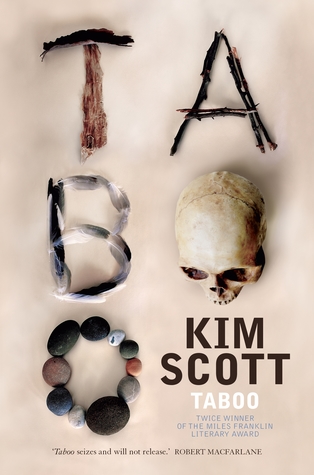Taboo is the first of two-time Miles Franklin award-winning author Kim Scott’s books that I have read. The impetus for the story is the opening of a Peace Park in the small town of Kepalup, in Western Australia’s south. For the traditional owners, the Wirlomin Noongar people, the town is taboo. They have avoided it for generations following a massacre that occurred on a nearby farm. Now the farm’s elderly owner wishes to make amends for his ancestors’ murderous deeds and fulfill his dead wife’s dream of a Peace Park.
A group of thirty Wirlomin gather at a beachside caravan park to plan the ceremonial opening of the park. Here the author has a bit of fun with the whole idea, when the Wirlomin joke about the park’s name: Police Park, Peace Plaque, Please Plaque. Here too, the turmoil seething just beneath their bonhomie, begins to surface.
The reader joins the pilgrims as they become reacquainted with their traditional country, language and lore. It is with these descriptions of country that Scott is at his most poetic, invoking the beauty and harshness of the Western Australian landscape.
The novel’s moral centre is teenage girl, Tilly Coolman, who is trying to find some peace of her own following the scars of a brutal childhood. Many of the characters in Taboo are searching for a kind of peace, whether with their own misdeeds, the deeds of their ancestors, or the terrible deeds inflicted upon them and their people.
The novel took me on a journey which was at times unsettling. It isn’t an easy read, and perhaps doesn’t always succeed in what it sets out to do. Nevertheless I am still thinking about it two weeks after putting it down. And I suspect I might be for a while. This is not a novel describing a cultural idyll. It is at times humorous, often sad, sometimes brutal, but in the end, I think, hopeful.
